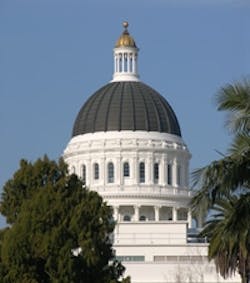California's drinking water problem addressed in legislative hearing
CALIFORNIA, April 7, 2016 -- California lawmakers listened to an update today on the state's Drinking Water Program and its transition to the State Water Resources Control Board in 2014. The progress report was delivered during an oversight hearing of the Senate Environmental Quality Committee.
Sen. Bob Wieckowski (D-Fremont), chair of the committee, said the hearing's focus was to review the State Water Board's "progress on the reorganization" and explore any challenges or gaps that have arisen.
In July 2014, the state's Drinking Water Program moved from the California Department of Public Health to the State Water Board.
Tom Howard, executive director of the State Water Board, said during the hearing that the move arose from the perception that a "single agency in charge of all water-related activities had the potential for the whole to be greater than the parts."
Howard outlined the transition process, which included planning by several work groups and an external task force.
Cindy Forbes, deputy director of the State Water Board's newly formed Division of Drinking Water, spoke in more detail about objectives of the office. She discussed efforts to consolidate smaller drinking water systems into nearby larger ones in order to bring the smaller systems into compliance.
"We are going to be very strategic and surgical to make sure we don’t step on the toes of (Local Agency Formation Commissions)," she said.
Wieckowski said stepping on toes may be necessary.
"If we have to step on some toes, be that as it is -- this is the 21st century," he said, referencing the need for all water systems to provide safe drinking water.
ACWA Deputy Executive Director for Government Relations Cindy Tuck testified that the "drinking water program is one of the state's most important programs." She praised the stakeholder process that led up to the transition to the State Water Board, saying "when the transition actually happened on July 1, it was seamless."
ACWA was engaged in the task force that helped facilitate the transition and Tuck said she believed the association’s concerns were taken into consideration.
"Kudos to the (Brown) Administration and the board for that work," said Tuck.
Tuck went on to outline some of the issues of concern to ACWA about the drinking water program. Among them is the issue of a lack of safe drinking water in some disadvantaged communities, in particular those that lack funds for operation and maintenance of their water system. Tuck said the ACWA Board of Directors in March decided to work to develop proposals to address lack of safe drinking water in some disadvantaged communities.
"We want to work proactively for solutions on the ground," said Tuck.
Other concerns include the complications inherent in meeting new drinking water standards.
"You don’t flip a switch and meet a new standard," said Tuck. "It takes a lot of work by a lot of people."
Tuck also said assessing fees on larger water systems to pay for improvements in smaller systems is of concern.
"Does it make sense to dramatically raise fees on large systems?" she asked.
Jenifer Clary, policy advocate for Clean Water Action, also testified about challenges in proving clean water throughout the state.
About ACWA
The Association of California Water Agencies (ACWA) is the largest statewide coalition of public water agencies in the country. Its 430 public agency members collectively are responsible for 90% of the water delivered to cities, farms and businesses in California.
RELATED ARTICLES
Californians “Just Shy” of water conservation mandate
